Today I will talk a disease which are very harmful,it is a disorder in which nerve cells activity in the brain is disrupted,causing seizures.Epilepsy is a group of neurological disorders characterized by epileptic seizures. … The cause of most cases of epilepsy is unknown. Some cases occur as the result of brain injury, stroke, brain tumors, infections of the brain, and birth defects through process known as epileptogenesis.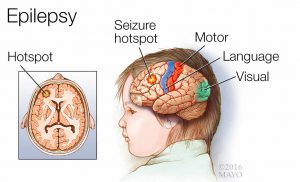
Epilepsy is a neurological diseases which can happen to anyone,at any age,at any walk of life, Epilepsy affects around one in every 100 people in the UK. Every day, 87 people are diagnosed. … Diagnosis can result in the loss of a driving licence and loss of employment.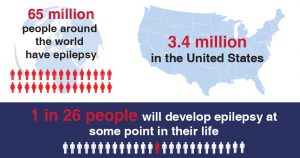
The effect of epilepsy beyond those with the diagnosis and impact the family,communities and society. Caregiver and sibling quality of life is often negatively affected by frequent seizures, comorbid behavioral and sleep disorders and stigma surrounding the diagnosis.
Furthermore,to detect the diseases,our doctor may also suggest to detect brain abnormalities such as:Electroencephalogram (EEG). …
High-density EEG. …
Computerized tomography (CT) scan. …
Magnetic resonance imaging (MRI). …
Functional MRI (fMRI). …
Positron emission tomography (PET). …
Single-photon emission computerized tomography (SPECT)
To diagnose your condition, your doctor will review your symptoms and medical history. Your doctor may order several tests to diagnose epilepsy and determine the cause of seizures. Your evaluation may include:
A neurological exam. Your doctor may test your behavior, motor abilities, mental function and other areas to diagnose your condition and determine the type of epilepsy you may have.
Blood tests. Your doctor may take a blood sample to check for signs of infections, genetic conditions or other conditions that may be associated with seizures.
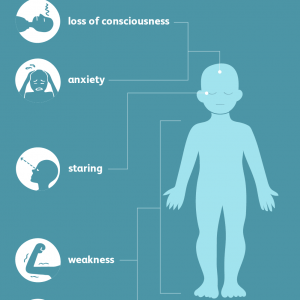
As epilepsy is a brain disorder,it can affect many system of our body system throughout the body.Epilepsy may stem from changes in the brain’s development, wiring, or chemicals. … The disease disrupts the activity of brain cells called neurons, which normally transmit messages in the form of electrical impulses and also the circulatory system can affect us.
Circulatory system.Seizures can interrupt the heart’s normal rhythm,
causing the heart to beat too slowly, too quickly, or erratically. … Experts believe some cases of sudden unexpected death in epilepsy (SUDEP) are caused by a disruption in heart rhythm. Problems with blood vessels in the brain can cause epilepsy.
transplantation or any other scientific advances play an important role in the treatment of the disease as
Many medications are used in the treatment of epilepsy and seizures and by this we can control it, including:
- Carbamazepine (Carbatrol, Tegretol, others)
- Phenytoin (Dilantin, Phenytek)
- Valproic acid (Depakene)
- Oxcarbazepine (Oxtellar, Trileptal)
- Lamotrigine (Lamictal)
- Gabapentin (Gralise, Neurontin)
- Topiramate (Topamax)
- Phenobarbital.
- The medicines can us a lot for curing the diseases,most epilepsy is treated with medicines,drugs do not cure epilepsy but we control it by the help of drugs.
Herbs or other natural treatments may interfere with medications and seizures might result. … Epilepsy is a serious disease, and it’s important to prevent seizures. Natural treatments may complement your medical treatment. In some cases, these therapies may even improve your treatment.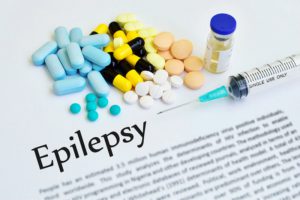
Moreover there could some economical,social and ethical impact on the diseases,Economical impact can be Epilepsy poses a substantial economic burden for health systems and individuals and their families.There is uncertainty over the degree to which private health insurance or social health insurance coverage provides adequate protection from the costs of epilepsy. Future research is required to examine the role of different models of care and insurance programs in protecting against economic hardship for this condition.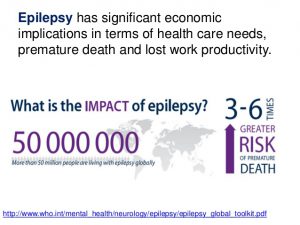
Social impact can be Epilepsy has many non-medical effects on the people with epilepsy, their family and community. To ensure that epilepsy is fully controlled requires a specialist neurologist or paediatrician with up-to date detailed knowledge to diagnose and prescribe treatment, a general practitioner to supervise day to-day medical management and an epilepsy specialist community worker to provide psycho social support, information and education to help maintain quality of life.Ethical impact could be Ethical issues related to epilepsy care in the developing world. There are three major issues of ethical concern related to epilepsy care in the developing world. … Third, do countries with plentiful resources have an ethical responsibility to help relieve the high epilepsy treatment gap of poor countries.